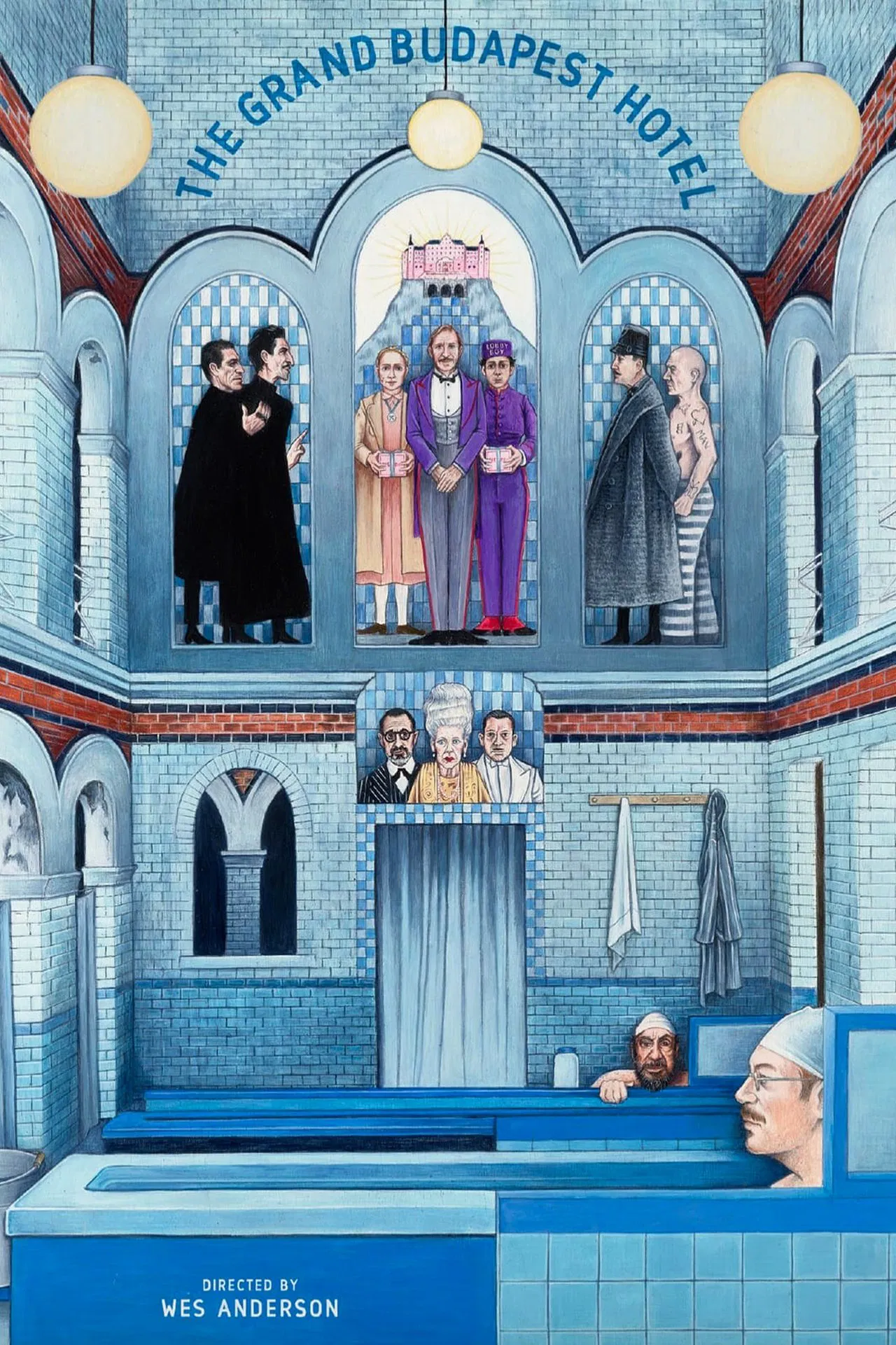
The Grand Budapest Hotel
2014
Reviewed on: Dec 30, 2024
Review
Here it is. My favorite film of all time. I don't really even know where to begin with this review as I can easily find praise to shower for every small piece of this film. The performances, the style, the writing, the cinematography, the score, the directing—I think you can make cases for why any of these could be the best part of the film. I've seen The Grand Budapest Hotel around 10 times now and discover new and impressive things with each successive viewing. And with my initial gushing over this film out of the way, let's get into some specifics.
First up: the style. As Wes Anderson's eighth directorial feature, he has had plenty of time to perfect what is now his immediately recognizable style of filmmaking. The colors are pastel, the cuts are quick, the costuming is impeccable, and the dialogue is witty. All of these combined deliver a one hundred minute experience that is airtight: there is no fat to this film and no room to ever be bored. Anderson's unique style consistently baffles me, and I always find myself asking the question of how he could come up with something as truly unique as The Grand Budapest.
Next, we have the dialogue, which in true Wes Anderson fashion is witty, dry, and fast-paced. With the exception of Ralph Fiennes, almost all dialogue deliveries are deadpan as if the actors were comically asked to not emote. This choice succeeds both in adding an element of humor to the film and elevating our interest in and attention to Monsieur Gustave H., who is anything but deadpan. It is hilariously quick-witted while also feeling as if it comes out of an old children's book. It feels very cute in that sense.
Third, is our shining protagonist—a performance that is nothing short of electric. The verbose dialogue and Fiennes' acting result in some of the best monologues I know to exist in film. There are always multiple times when I watch this film that I wish my own speech could enter into such a flow state of eloquence as Monsieur Gustave H. And even beyond the charming formality of Fiennes' speech, this dialogue has the effect of conveying Gustave's sense of professionalism as he proves time and time again his unflinching belief in the importance of his profession. "You see? There are still faint glimmers of civilization left in this barbaric slaughterhouse that was once known as humanity. Indeed that's what we provide in our own modest, humble insignificant—oh, fuck it."
The last thing I want to mention in my enjoyment of this film is the attention to detail it exhibits. Much like the meticulous concierges it centers around, The Grand Budapest Hotel is attentive and thoughtful, making repeat viewings incredibly rewarding as new details are spotted. The following are some of my favorites:
- Boy with Apple is on the back of the dinner menu.
- All of the verse recitations are cut off mid-sentence until the very last one recited by Agatha when at last the story comes to a close.
- "Our mutual friend's predecessor" and Monsieur Jean steps back into frame.
- A Mendl's treat is served as the dessert for the dinner between The Author and Zero.
- The absence of L'air de Panache is the ultimate reason Gustave blows up at Zero, not the lack of shelter or disguises (certainly two more pressing concerns).
I am sure that I will continue to find little details like this in my future viewings of this film (and best believe there will be plenty of future viewings). The amount of joy I derive from watching and re-watching this film makes me confident in my opinion that it is the best film of all time.